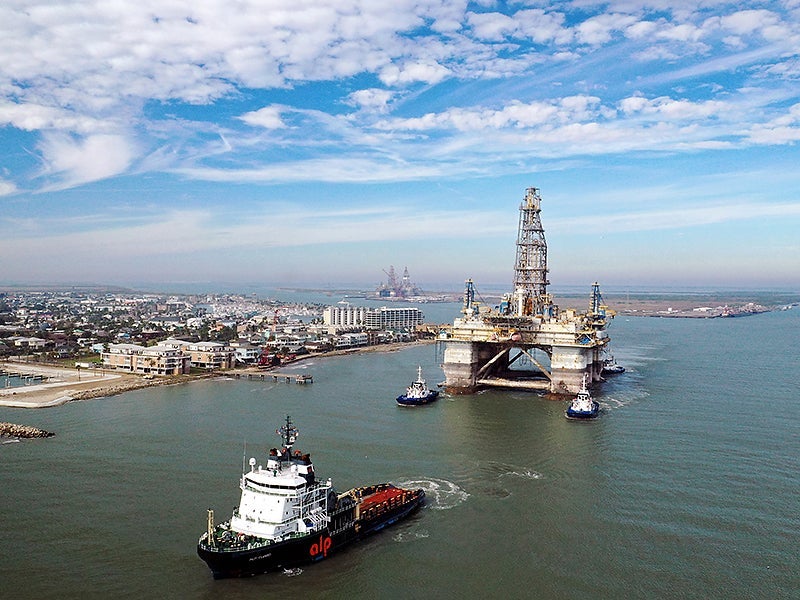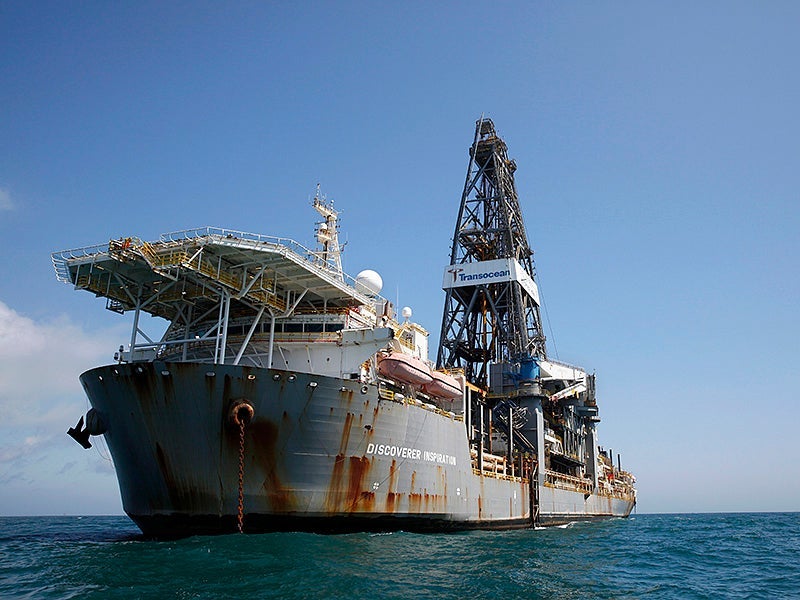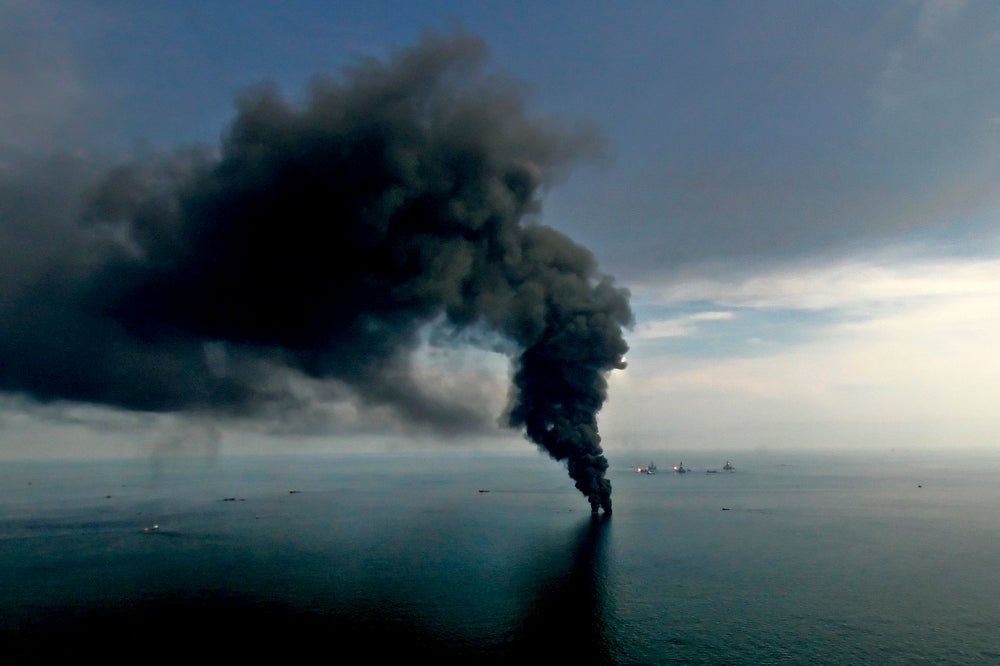Biden Has This Little-Known Option for Making Big Climate Impact
Our oceans are an asset for saving the planet, not lining Big Oil's pockets.

This page was published 3 years ago. Find the latest on Earthjustice’s work.
The United States’ climate action has been undercut by political gridlock — but there is hope. The Biden administration can enact big climate policy whose survival doesn’t depend on the next presidential election.
Enter: the government’s five-year offshore oil lease plan. Earthjustice fights in the courts to keep fossil fuels in the ground, and in some cases, we push the government to enact strong climate policies so that we don’t have to go to court. The Biden administration has a unique and critical opportunity when drafting a new plan this year to make one simple choice that could help avert us from the worst of the climate catastrophe.
What the five-year plan is:
- This plan, known as the Five-Year National Outer Continental Shelf Oil and Gas Leasing Program, determines how — or, crucially, if — the United States uses its assets in federal waters, namely underwater oil and gas.
- The overwhelming majority of offshore drilling happens in the Gulf of Mexico, home to infamous oil spills like BP Deepwater Horizon and Taylor.
- Every five years, an executive branch agency called the Bureau of Ocean Energy Management (BOEM), housed within the Interior Department, outlines a new plan.
- The agency determines where and how much ocean territory the government leases to fossil fuel companies to extract oil and gas from our ocean floors.
- Legally, BOEM must factor in what would “best meet national energy needs,” and its plan must be consistent with the government’s environmental protection priorities, as well as other economic and social values. Earthjustice’s recent legal wins have ensured that the government also accounts for climate impacts when issuing leases.

A drill ship anchored in the Gulf of Mexico, off the Louisiana coast in 2021.
(Brad Zweerink / Earthjustice)
How the five-year plan can make a huge difference in the climate crisis:
- The short answer: The administration could simply not offer any new offshore leases to fossil fuel companies.
- It is well within Interior Secretary Deb Haaland’s authority to provide no new lease sales in BOEM’s next Five-Year Program.
- Adopting such a plan would prevent new destruction and carbon emissions in U.S. waters across the Atlantic, Pacific, Alaska, and the Gulf of Mexico, regardless of who sits in the Oval Office during the next five years.
- Offshore oil and gas leasing threatens marine life and precious ecosystems via drilling in the seafloor, deafening seismic blasts, and catastrophic oil spills. These activities and their carbon emissions fuel extreme weather by heating up ocean waters and raising the sea level, while simultaneously weakening vital marine ecosystems.
- In contrast, ending federal offshore leasing would have profound climate and environmental justice benefits, from reducing greenhouse gas pollution rates to protecting vital ecosystems and the communities that depend on them.

Oil-covered brown pelicans found off the Louisiana coast and affected by the BP Deepwater Horizon oil spill wait in a holding pen for cleaning at the Fort Jackson Oiled Wildlife Rehabilitation Center in Buras, Louisiana, in 2010. (Saul Loeb / Getty Images)
Leasing more of our oceans won’t help domestic gas prices — but it would hurt nearby communities.
- Contrary to conservative misinformation, gas prices are largely determined by global energy markets and geopolitical events, not domestic policies. On average, new offshore lease sales, take 10 years to develop, meaning that new leases will do nothing to help soaring gas prices. And in a decade we must be well into a clean energy transition.
- The fossil fuel industry has already leased but not yet developed a huge stockpile of offshore leases. With many forms of zero-emissions energy now widely available and affordable, there is no need for the government to lease more of the ocean to oil companies.
- Gulf communities in particular have been irreparably harmed by oil and gas drilling on our coasts. We must focus on a transition to a clean energy economy that doesn’t continue the industry practice of sacrificing parts of the population.

Smoke billows from controlled oil burns near the site of the BP Deepwater Horizon oil spill in June 2010.
(Derick E. Hingle / Bloomberg via Getty Images)
To meet its climate goals, the Biden administration must stop the sale of U.S waters to oil and gas companies.
- President Biden ran on the strongest environmental platform in U.S. history. Nearly 7 out of 10 people who voted for President Biden in 2020 viewed climate change as a crucial issue.
- Yet two years into his presidency, the U.S. federal fossil fuel program has fallen far short from Biden’s stated national climate pollution target and the goals of the Paris Agreement.
- Climate science clearly shows that no new fossil fuel infrastructure can be developed anywhere if we hope to limit global warming to 1.5°C.
- This is a clear opportunity for President Biden to stand strong in the face of misinformation and climate denialism and inspire a generation of young people looking to him to deliver.
The climate crisis is undeniably our current reality — but it is not yet an unavoidable future. Tell President Biden to use this powerful tool to make good on his campaign promises.
Earthjustice’s Fossil Fuels Program is taking on the fossil fuel industry’s efforts to pursue new paths to profit that not only accelerate the climate crisis, but also continue to cause harm to marginalized communities.
Earthjustice’s Oceans Program uses the power of the law to safeguard imperiled marine life, reform fisheries management, stop the expansion of offshore oil and gas drilling, and increase the resiliency of ocean ecosystems to climate change.